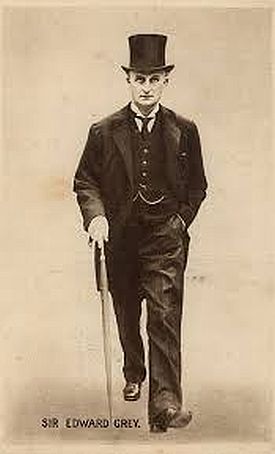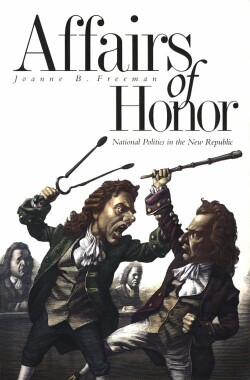The Forgotten Honor of World War I
The Face of Honor
If the men of Europe who went to war in 1914 were permitted to return to the land of the living for long enough to read the literature of the Great War, what do you suppose they would make of our scholarly obsession, a hundred years later, with the question of the war’s beginning? They might well wonder if we still get the joke of the fake headline that is said to have circulated after the war: “Archduke Franz Ferdinand Found Alive: War Fought By Mistake.” Our being po-faced about this is not only because we believe it to be in poor taste to laugh about so many deaths. The point of our digging around in the details of the diplomatic chain reaction that started “the greatest catastrophe the world has ever seen” — the words are those of the British foreign secretary, Sir Edward Grey — or at least “the seminal catastrophe of the twentieth century” (George F. Kennan) is that we feel the pressure of the imperative to believe the war was, indeed, fought by mistake. A mistake that, just because it was a mistake, could have been avoided.
Explicitly or implicitly, that seems to be the view of almost every author in the small library of books that have come out in the last year or so about the causes and origins of the war — some including a perfunctory history of the war itself and some concluding in August 1914, at the end of what a century later appears to be the most interesting thing about the war: its beginning. Margaret MacMillan, whose history of the period in The War That Ended Peace is one of the most exhaustive, can speak for the others in the final words of her epilogue when she notes that, “if we want to point fingers from the twenty-first century we can accuse those who took Europe into war of two things. First, a failure of imagination in not seeing how destructive such a conflict would be and second, their lack of courage to stand up to those who said there was no choice left but to go to war. There are always choices.”
It is not clear to me that she is right about either of these two things. First, no one could have foreseen the full extent of the horror that was to befall, but lots of people, including many of those who made the crucial decisions to go to war, had a fairly good idea that, as The Times of London editorialized at its outset, “Europe is to be the scene of the most terrible war that she has witnessed since the fall of the Roman Empire.” And if Sir Edward Grey mistakenly believed that Britain’s navy would prevent her from suffering as much as other countries would, he was very far from lacking the imagination to see substantially what lay ahead. His more famous saying was that “the lights are going out all over Europe. We shall not see them lit again in our lifetimes.” The pathos there derives precisely from the fact that he had taken a rough measure of the destruction that was to come — and that he thought he and his country had to go to war anyway.
And second, for Professor MacMillan to say that a greater determination on the part of the world’s statesmen to keep the peace could not but have resulted in a better choice for all the belligerents in 1914 is at one level a mere tautology. If the choice had been made for peace, there would have been no war, and if there had been no war, there would have been none of the destruction of the war there was, because they made the opposite choice. Hurrah! But of course we do not really know what consequences would have followed a refusal to fight. That is what makes Professor MacMillan’s assumption and that of the others who stress the mistake it was for anybody to fight, irrespective of whether he was aggressor or defender, into a profession of belief. If there are always choices, then there can never be an argument from necessity. Again, this is at one level a banality: there are always choices, right enough, but only so long as you have no prejudice against surrender. In practical terms, as Orwell said, the quickest way of ending a war is to lose it. In fact, it is pretty much the only way — apart from winning it.
But let us assume that Professor MacMillan is saying something rather more interesting than this. Perhaps she means that it is an article of faith with her — and with many others of like mind with her — that determined negotiators for the morally superior side in a conflict (tacitly assumed to be the British in this case) can always find that diplomatic will-o’-the-wisp, “a negotiated solution,” no matter what the warlike determination or the bad faith of the other side might be. This idea is now such a truism that she feels no need to argue for it or even to spell it out. It is the origin of the curious notion that emerged a decade or so ago, during America’s war in Iraq, of “wars of choice” — an immense concession at the outset, though few saw it as such at the time, to the anti-war party. By acknowledging that one is fighting a war of choice, one has already admitted that it is an unnecessary war — and that the death and suffering the war causes, as wars inevitably do, are also unnecessary. If there are always choices, who but a monster or a sociopath would not choose peace?
Obligations of Honor
Those who, during the centenary observations, have written about the “lessons” of the First World War appear not to have noticed that thinking about war in this essentially pacifistic way is itself the principal legacy of the war and of its literary-historical aftermath. Partly, this is because, in retrospect, so much of what led up to war in August 1914 looks like a mistake, beginning with a wrong turn by the Archduke’s chauffeur down a side-street in Sarajevo in a car with no reverse gear. This is what brought Franz Ferdinand and his wife face to face with their assassin, Gavrilo Princip, after he had decided to give up the attempt and retire to a coffee shop. Why, it’s not just a mistake, it’s what the media would call an ironic twist.
Those, like Professor MacMillan, who stress the blindness of the principals to the forces they were unleashing in starting the war are at the same time insisting on the idea of mistakenness. They stress the contemporary testimony not of the clear-sighted, assuming there were any, but of those who imagined the war would be over in a matter of weeks. Adam Hochschild, writing in The New York Times, generalizes from this mistake and attributes it to the relatively easy imperial wars which were all that belligerents on both sides had any real experience of. Hence, too, the title of Christopher Clark’s The Sleepwalkers, another of the recent books devoted to a minute examination of the question of “How Europe Went to War in 1914.” What the late John Keegan wrote many years ago, that “the First World War was a tragic and unnecessary conflict,” can now, it seems, be taken for granted. Daniel Hannan, writing for The Daily Telegraph, stresses the literally tragic nature of the mistake, as if it had been written to conform to Aristotle’s idea of tragedy.
Yet surely it is not an irrelevant consideration that this settled history, as we might call it, is all retrospective, and not at all how people saw things at the time. Indeed, it is striking how few of today’s histories of the period even make reference to, let alone attempt to explain, the reasons offered by the people who went to war in 1914 themselves for why they did what they did. Prominent among those reasons was honor, something with which we are now so unfamiliar that we feel safe in assuming it was no reason at all. It is now largely forgotten that Sir Edward Grey, in his speech to Parliament announcing the British decision to go to war, stressed both the honorable reasons for fighting and those for not fighting. “I can say this with the most absolute confidence,” he insisted,
no government and no country has less desire to be involved in war over a dispute with Austria than the country of France. They are involved in it because of their obligation of honor under a definite alliance with Russia. Well, it is only fair to say to the House that that obligation of honor cannot apply in the same way to us. We are not parties to the Franco-Russian alliance. We do not even know the terms of the alliance.
He acknowledged there was no treaty obligation to go to war just because France was at war, but he gave long consideration to the national interest involved if Germany should make a naval attack on the undefended northern and western coasts of France (the French fleet being all in the Mediterranean by prior agreement with Britain) and the unwisdom of trusting to the German undertaking not to make such an attack. But his main attention was given to Britain’s treaty obligation (incurred by the Treaty of London, also known as the Quintuple Treaty of 1839) to Belgium to maintain its neutrality. He did so, however, in terms that amount to (as I see it) a restatement of the reasons for Britain’s incurring that obligation in the first place.
If France is beaten in a struggle of life and death, beaten to her knees, loses her position as a great power, becomes subordinate to the will and power of one greater than herself — consequences which I do not anticipate, because I am sure that France has the power to defend herself with all the energy and ability and patriotism which she has shown so often — still, if that were to happen, and if Belgium fell under the same dominating influence, and then Holland, and then Denmark, then would not Mr. Gladstone’s words come true, that just opposite to us there would be a common interest against the unmeasured aggrandizement of any power? It may be said, I suppose, that we might stand aside, husband our strength, and that, whatever happened in the course of this war, at the end of it intervene with effect to put things right, and to adjust them to our own point of view. If, in a crisis like this, we run away from those obligations of honor and interest as regards the Belgian treaty, I doubt whether, whatever material force we might have at the end, it would be of very much value in face of the respect that we should have lost. And do not believe, whether a great power stands outside this war or not, it is going to be in a position at the end of it to exert its superior strength.
Because Grey put it in this way — that is, in terms of a permanent British interest in preventing a single powerful hegemon from dominating the Continent — Theobald von Bethmann-Hollweg, the German Chancellor, started the fashion of assuming that the real reason Britain had gone to war was naked self-interest rather than “obligations of honor.” As Bethmann-Hollweg said in an interview later in the war:
One needs only to read [Sir Edward’s] speech through carefully to learn the reason of England’s intervention in the war. Amid all his beautiful phrases about England’s honor and England’s obligations we find it over and over again expressed that England’s interests — its own interests — called for participation in war, for it was not in England’s interests that a victorious, and therefore stronger, Germany should emerge from the war.
That was why, explained Bethmann-Hollweg, he had said at his last meeting with Sir Edward Goschen, the British ambassador in Berlin on the day war was declared, that he could not believe Britain would go to war over “a scrap of paper” — that is, the Quintuple Treaty. Others argued that the treaty had been superseded by one concluded by Prime Minister Gladstone with the belligerents in the Franco-Prussian War of 1870 to preserve Belgian neutrality, and pointed to Grey’s quotation from Gladstone. That treaty had had an expiration date attached to it — after which Grey, though not his critics, seems to have assumed that the treaty of 1839 was back in force. It could be argued, however, that an obligation of honor by its very nature depends on something more than a “scrap of paper,” and that only a public renunciation of the treaty and its obligation to defend Belgian neutrality in advance of the German invasion could have voided that obligation.
There was also, of course, a radical asymmetry between the British interest in standing in the way of a Continental hegemon and the German interest in becoming one, the former being by its nature defensive and the latter aggressive. This consideration also drops out of many of the recent histories of the war’s outbreak, perhaps because of a perceived need in the scholarly community to avoid making moral judgments that might be seen as stigmatizing whole nations, even long after the leaders who made the fateful decisions to go to war and the soldiers who enthusiastically followed them into battle were dead. The German historian Fritz Fischer, who served in the Wehrmacht during the Second World War, concluded decades ago that the blame for the First World War fell squarely on Germany. But that kind of finger-pointing is now out of fashion among historians. Their progressive and pacifist assumptions make them focus instead on the British, who could have prevented the whole thing — or at least prevented it from becoming the catastrophe it was — by declining to respond to the German provocation.
To such a way of thinking, honor must be given no consideration at all, even though it was the primary consideration of Sir Edward and those of all parties in the House of Commons who responded so enthusiastically to his reasoning. Later he made a further statement to the House, updating his earlier one by quoting the Belgian reply to German demands for the right of free passage for her armies over Belgian territory lest she be treated as an enemy: “The Belgians have answered that an attack on their neutrality would be a flagrant violation of the rights of nations, and that to accept the German proposal would be to sacrifice the honor of a nation. Conscious of its duty, Belgium is finally resolved to repel aggression by all possible means.” Thus British honor, incurred by treaty, is seen as also existing within the penumbra, as we might say, of a corresponding Belgian honor that was not seen as a matter of treaties but as an inevitable concomitant of nationhood. “The honor of a nation” appears in this context to mean the same thing as the nation’s right to defend itself and its integrity from foreign aggression.
Particular Honor vs. Abstract Right
America’s eventual entry into the war in 1917 was exactly comparable to that of Britain at the outset, since, unlike France or Belgium, it was her honor alone rather than her territory that was most immediately at stake. But in his speech to Congress on April 2 of that year, President Woodrow Wilson chose not to follow Sir Edward Grey’s example. He never mentioned honor, though he alluded to it when he said that “there is one choice we cannot make, we are incapable of making: we will not choose the path of submission and suffer the most sacred rights of our nation and our people to be ignored or violated.” Of course, that was exactly the choice Wilson had made hitherto, including the period of “armed neutrality” between the German announcement of unrestricted submarine warfare against neutral shipping in January and the April declaration of war, but armed neutrality had not worked. Now that, as he acknowledged, war had been forced upon him and his country, he chose to justify it not in terms of national honor but of universal principles of justice and humanity which Germany was said to have violated.
This was naturally a way of looking at the matter that was more congenial to Wilson’s progressive views. He also took up a now-more-familiar progressive attitude in the following remarkable statement:
We have no quarrel with the German people. We have no feeling towards them but one of sympathy and friendship. It was not upon their impulse that their Government acted in entering this war. It was not with their previous knowledge or approval. It was a war determined upon as wars used to be determined upon in the old, unhappy days when peoples were nowhere consulted by their rulers and wars were provoked and waged in the interest of dynasties or of little groups of ambitious men who were accustomed to use their fellow men as pawns and tools. Self-governed nations do not fill their neighbor states with spies or set the course of intrigue to bring about some critical posture of affairs which will give them an opportunity to strike and make conquest. Such designs can be successfully worked out only under cover and where no one has the right to ask questions. Cunningly contrived plans of deception or aggression, carried, it may be, from generation to generation, can be worked out and kept from the light only within the privacy of courts or behind the carefully guarded confidences of a narrow and privileged class. They are happily impossible where public opinion commands and insists upon full information concerning all the nation’s affairs.
Here we may see the origin of the progressive faith, more recently displayed at the time of the invasion of Iraq in 2003, that, wars being the product of undemocratic polities, fighting for democracy is permissible where fighting for mere honor would presumably not be, if anyone were so ill-advised as ever again to bring it up as a reason for fighting.
The question of the war’s inevitability or mistakenness had a particular resonance to Americans because they had managed to keep out of it for so long in spite of the many provocations against American honor in the sinking of American shipping and the consequent loss of American lives. Wilson held out as long as he did partly because he clung to his cherished dream of America as an “honest broker,” settling the quarrels of the less-enlightened European belligerents. But that dream also depended on the assumption that only universal principles could apply to matters of war and peace, just as he saw them as applying to American governance, and that the argument from honor was therefore no argument at all.
He should have foreseen that the argument from universal principles inevitably tended to pacifism. If a life was a life, whether Allied or German — and surely this was the point of his contention that “we have no quarrel with the German people” — then every life lost in the quest for abstract right and justice further raised the already importunate considerations of proportionality. How can it ever be right to cause so much suffering to so many, whatever lofty principle may be at stake? Nowadays, historians like Michael Kazin, arguing in The New Republic (here and here), find it easy to assume that the moral motivation is no more real than the honorable one but merely a pretext for the hope of some national advantage to be gained by fighting — a hope so far from being realized in the case of the First World War that it had the unintended consequence of causing the much more destructive Second. The implication is that that was really the war it was not right for America (or anyone else) to get involved in.
But one could also see the moral justification for war as a pretext designed to give a greater respectability, especially among Wilson’s fellow progressives, to the honorable one. Honor, in other words, seems to have been as likely the motivation for America’s going to war as for Britain’s — or Germany’s for that matter. But the fact that all were fighting for honor does not mean that they were fighting for nothing, or even the same thing, since honor is by its nature socially contingent and stubbornly resists any attempt to press it into service for universal purposes. It may have been, for some of those who appealed to it, a foolish reason for embarking on a course that led to so much sacrifice, but that is not what our new historians seem to be saying. Rather, there appears to be a general assumption that honor is not a bad reason for fighting but no reason at all, something that must either disguise the “real,” which is to say the presumably discreditable reason, or to be discrediting itself. To say that it was a war for honor is for these historians the same as saying it was a war for nothing. We all now believe with Falstaff that honor is just “a word.”
How else to explain the fact that we now appear incapable of imagining the state of mind of those who made the decision for war in 1914 when they made it? Here, for example, is Ben Macintyre writing recently in The Times of London:
Amid the continuing debate over the moral and political reasons for going to war in 1914 there is a danger of overlooking a vital and poignant point about the Great War — the vast majority of soldiers who fought in that war never questioned it and were not even invited to think about the justification for fighting, or lack of it. Indeed, the First World War was the last major conflict in which British soldiers fought without any real understanding of the political issues at stake.
Mr Macintyre takes it for granted that an understanding of the political issues in terms of national honor, as the men of 1914 did, is somehow not “real” because reasoning from honor amounts to no reason at all. That is the necessary first step, a step we all now find easy to make, in concluding that the war was a mistake — something now, also, so commonly taken for granted that no one thought it worthy of comment when Jean-David Levitte, French ambassador to the United States, said in 2004, “the First World War was stupid. It was a war for nothing.” Of course, that is not what the people who actually fought it and made the sacrifices it involved thought, but this is supposed not to matter. With the advantage of hindsight, we can see that they were wrong. But we look at the matter in this way because the whole outlook of our political culture on matters of war and peace depends on that belief — the belief, that is, that war is always avoidable, that “there are always choices.”
That belief, unless it is simply meaningless, is a statement of utopian faith made as a corollary of the belief that World War I was a mistake. Not a mistake for Germany and Austria, which it obviously was, but equally a mistake for all who fought in the war, aggressors and defenders alike. This is now probably the belief of most scholars, historians, and intellectuals, perhaps even of most military men, and it is so because of our retrospective reasoning about that war, our routine assumption of our own superior wisdom to that of the people who fought and suffered. This, too, is a necessary assumption of progressivism, which by definition can allow no moral advantage to those at a lower stage of political development. But we may remind ourselves that some of those in the benighted past also considered themselves to be progressive and utopian and are among those who now appear to have been so grievously mistaken. Is it possible that future generations may come to see us in the same way?
Discover more from James Bowman
Subscribe to get the latest posts to your email.





